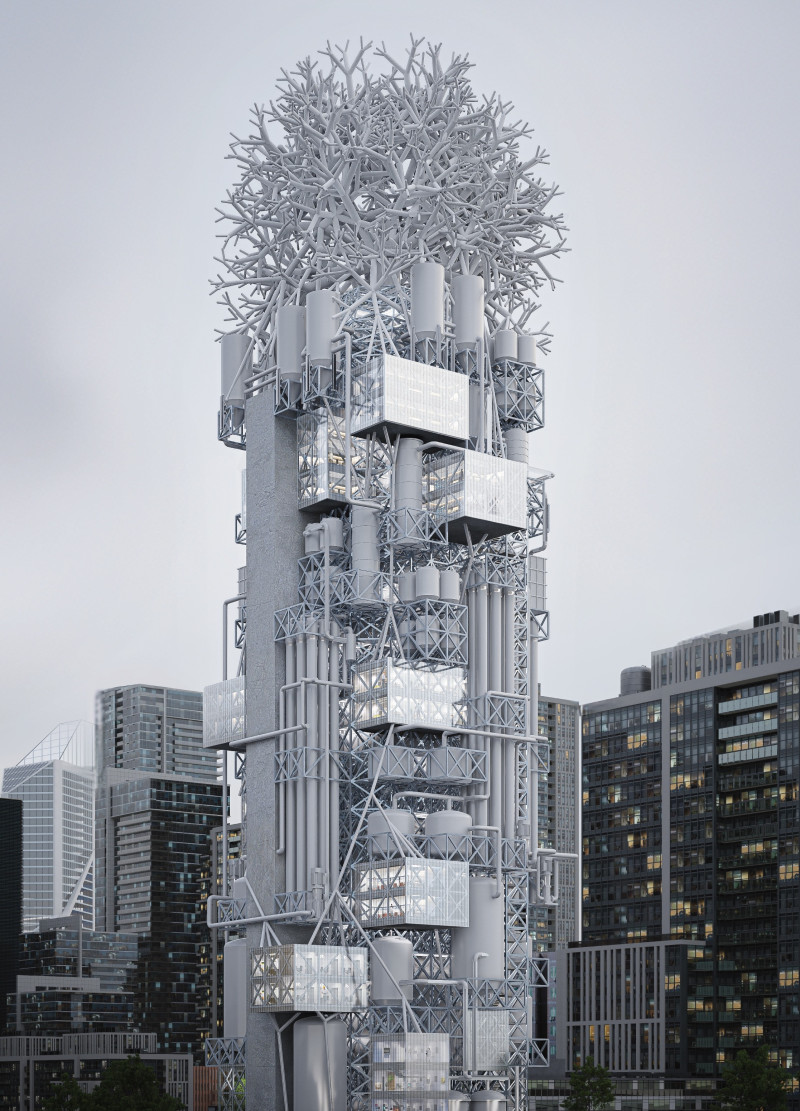5 key facts about this project
### Overview
The City Rainwater Platform is designed to address urban flooding and manage rainwater efficiently in urban environments. Located within an urban center, this prototype facility functions as both a rainwater storage and purification center and a community resource, reflecting the pressing need for sustainable infrastructure in light of climate change and increasing weather-related challenges.
### Spatial Organization and Characteristics
The building is strategically organized into distinct functional zones to maximize its effectiveness in water purification and community engagement. Key areas include rest spaces for social interaction, a botanical garden showcasing native plant species, an exhibition room for educational initiatives on water conservation, lecture rooms for academic discussions, and research facilities focused on urban hydrology.
A structured rainwater purification system operates within the facility, comprising stages such as coagulation, sedimentation, filtration, and disinfection, ensuring the harvested water meets safety standards for utilization. The design features a vertical form that mimics tree structures, enhancing rainwater capture while incorporating various materials, including concrete for stability, steel for structural resilience, and glass to encourage natural light.
### Sustainable Design and Materials
The City Rainwater Platform embodies sustainability through its choice of materials and passive design strategies. The structure employs concrete and steel for durability, aluminum for lightweight cladding, and geotextiles for effective water filtration. Additionally, sustainable composites are utilized in non-structural elements.
The integration of vegetation both inside and outside the facility enhances air purification and temperature regulation while supporting urban biodiversity. This multifaceted approach emphasizes not only water management but also the building’s role in fostering community awareness and engagement regarding environmental stewardship.



















































